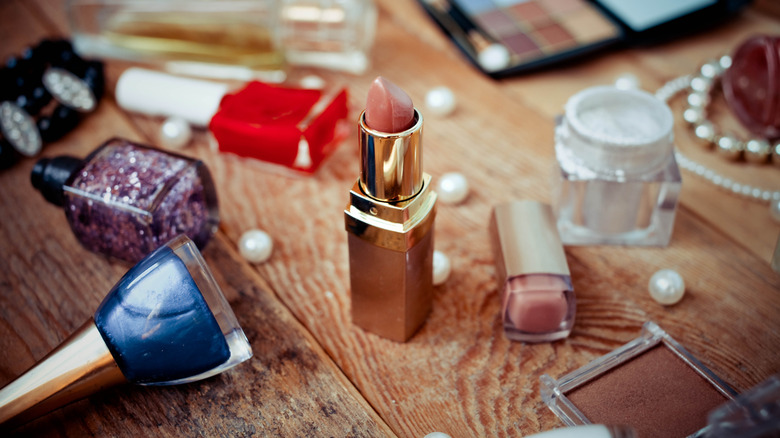The Viral 'Birthday Makeup' Trend Exposes Cis Men's Need To Rob Us Of Even The Smallest Joys
Being a woman trying to enjoy things — anything at all — sometimes feels like walking a patriarchal tightrope. Women's interests, and disinterests, are each pit against the double standards of the patriarchy: No matter what she does, it will not be enough to satisfy the demands of a social structure that sees women as less than (cis, straight) men. Even in the smallest ways, patriarchy demands that women work around the needs and wants of men. And one online trend takes this point to ridiculous lengths.
The hashtag #birthdaymakeup has more than 170 million collective views on TikTok at the time of writing. Birthday makeup videos tend to feature women getting ready to celebrate an occasion that is all about them, perhaps making that winged liner just a little bit longer and sharper, or going for a glittery eyeshadow that sparkles just a little bit stronger. But sprinkled amongst the festivities are more than a few outliers — videos of cis, straight men mocking women's birthday makeup looks. One TikTok video acts out a man waiting in the car to pick up his girlfriend, whose big crime was putting in the energy to look and feel good on her birthday. "When you're waiting outside your gf's house and you see a scary clown walk up to the car but it's just her in birthday makeup," the video text reads. While another video has one guy saying, "What is up with birthday make-up and why is it from the pit of hell?"
So, shall we discuss?
The birthday makeup trend is rooted in misogyny
When Refinery29 writer Izzie Deibe reached out to several men who criticized birthday makeup in their videos for comment, a few of them responded anonymously. "At the end of the day, makeup has to come off and we want to enjoy what we have to look at," one said, implying an ownership over women that is alarming.
Throughout time, women have been told in ways both explicit and implicit to make themselves smaller, so men can take as much space as they want. Women are often told they are "too much" of something (loud, talkative, controlling, emotional, etc.), and now we are wearing too much makeup — to shame us into maintaining the status quo. But as marginalized communities continue to seek equality and justice, some cis men feel threatened, leading to entitlement on how they think women should look. (As if there is an ideal, right?)
What's especially concerning is the message trickling down to women that we don't deserve or can't experience joy if it's not within men's boundaries. Even glitter is taking it a step too far. "It's a blessing to make it to another birthday," TikTok user jaythamua said in criticism of the trend, which touches on an even more frightening possibility — that we don't have enough personhood to warrant celebration, whether it be from them or ourselves.
Digital content has real implications
It is not a shock that, on the one day a year when a woman might want to feel like the best version of herself, some men online decide to put their feelings first. Psychotherapist Charlotte Fox Weber infers to Nylon about the trend that, while men expressing themselves is a positive, doing so at the expense of women does not serve a positive purpose. "This is inadequacy that's projected and detonated," she says.
While it might be easy to hide under the guise of "making content" for views, the step from making jokes online rooted in misogyny to normalizing dangerous rhetoric is not a big one. Online harassment is a real threat to women's well-being and safety. And social media algorithms are a grievously poor defense in protecting women; in fact, they tend to amplify harmful voices. For example, one man sternly addresses his girlfriend in another TikTok bit upon seeing her birthday makeup. "What did you do to your face, hm? I am not going into public with you like that, Pennywise," he says. "I will dip your face in that toilet, you hear me? Go get dressed again."
Women who have been marginalized by Eurocentric standards, including Black women and trans women, also face a beauty market that has devalued them throughout history. For these women, men's criticism of wearing birthday makeup is even more pointed. We hope, sometime soon, men decide to be part of the solution.
